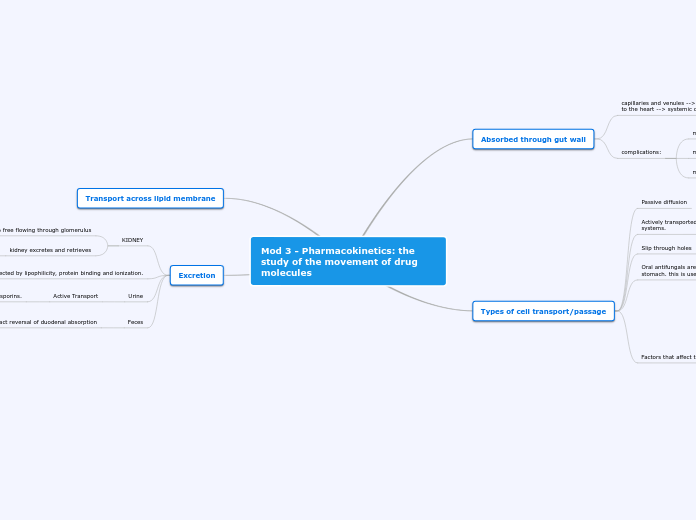Mod 3 - Pharmacokinetics: the study of the movement of drug molecules
Absorbed through gut wall
capillaries and venules --> Liver --> heart --> lungs -->back to the heart --> systemic circulation
complications:
much gets excreted w/o being absorbed
may require reabsorption to reach heart and become systemic
may be lost to bile circulation
Types of cell transport/passage
Passive diffusion
Actively transported across the membrane by enzyme systems.
Slip through holes
Oral antifungals are too big to get through. they remain in stomach. this is used to our advantage
Factors that affect transport and passage
Tendency to ionize
Ionized molecules cannot cross lipid membranes.
heavily defined by the pH
Urine has highest variability
Lipophilicity
(hydrophilic) will never get into the lipid membrane.
Affinity for protein molecules
When a molecule that is bound to a protein molecule is going to be temporarily tied up and not available for transport.
serum proteins (albumin)
Transport across lipid membrane
Excretion
KIDNEY
20% free flowing through glomerulus
kidney excretes and retrieves
Re-collects water, glucose, back sodium, potassium, etc
Affected by lipophilicity, protein binding and ionization.
Urine
Active Transport
penicillins and cephalosporins.
slow penicillin’s rate of excretion by giving the patient probenecid
Feces
Exact reversal of duodenal absorption
Intact molecules cross the membrane and are immediately ionized
